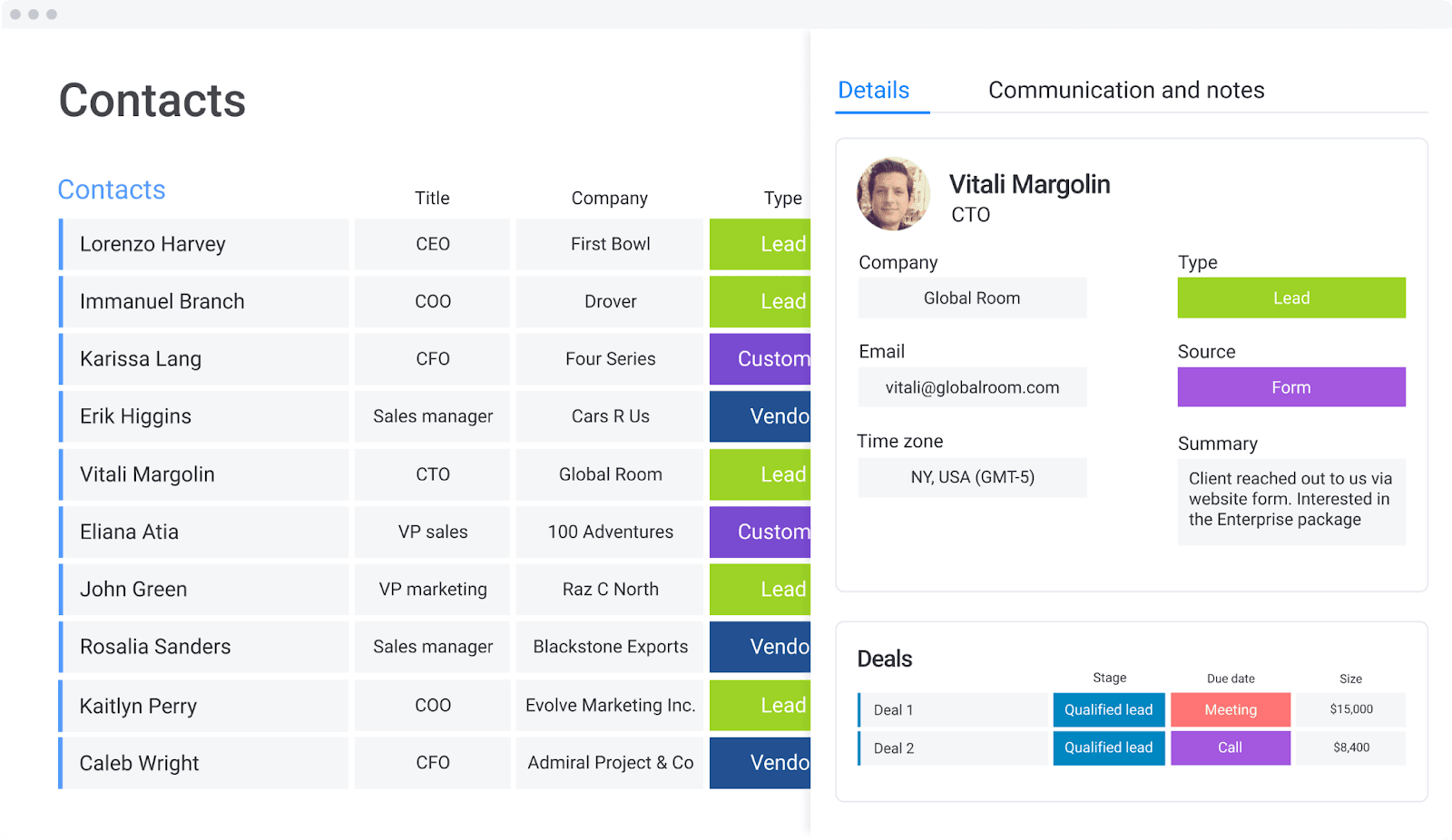
Your client list is growing every day. Celebration time! Yet every name added to the list makes the organization more complicated. Hunting down a new client’s phone number or realizing a vital detail they shared about the project has gone, poof!.
You need a client information sheet. But not just any client information sheet.
The way client information is managed can add to headaches or streamline your workflow. One of our goals at monday.com is to ensure your life is more straightforward.
Keep reading to learn more about client information sheets and how to create one with the monday.com client information sheet template.
A client information sheet is a document listing all relevant client details. A client information sheet template helps organize those client details to make managing client relationships easier.

The main reason to use a client information sheet template is to create a central client data repository. Never again wonder where to find a client’s contact information or worry about duplicate records.

Work in media production? Tracking clients is also imperative. A client information sheet template serves as a record of which stage of production each client video is in.
A template that allows easy task assignment to different team members is essential. For example, new clients could automatically be assigned to an account manager and then passed on to a video scriptwriter.
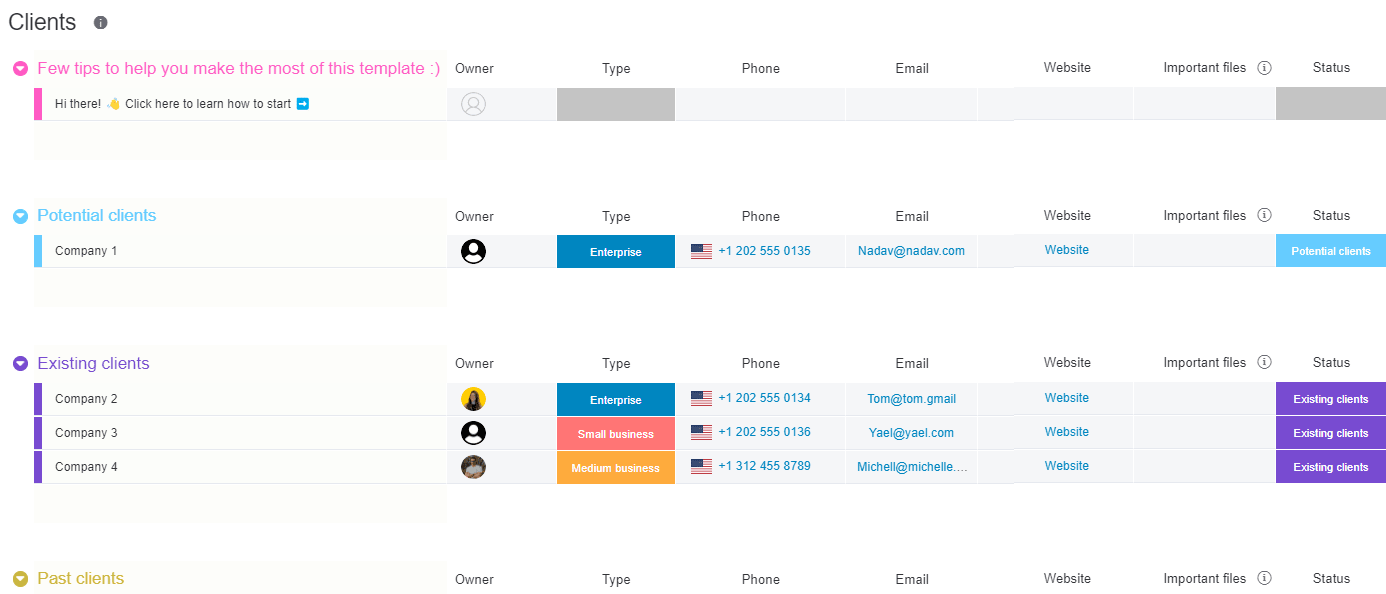
Tax season is busy, but that doesn’t mean letting clients slip through the cracks. A client information sheet template is your best friend.
An individual CPA’s tax client information sheet could include client contact details, due dates, and links to their tax documents. An accounting firm could use a similar template but with the ability to assign clients to a team member.
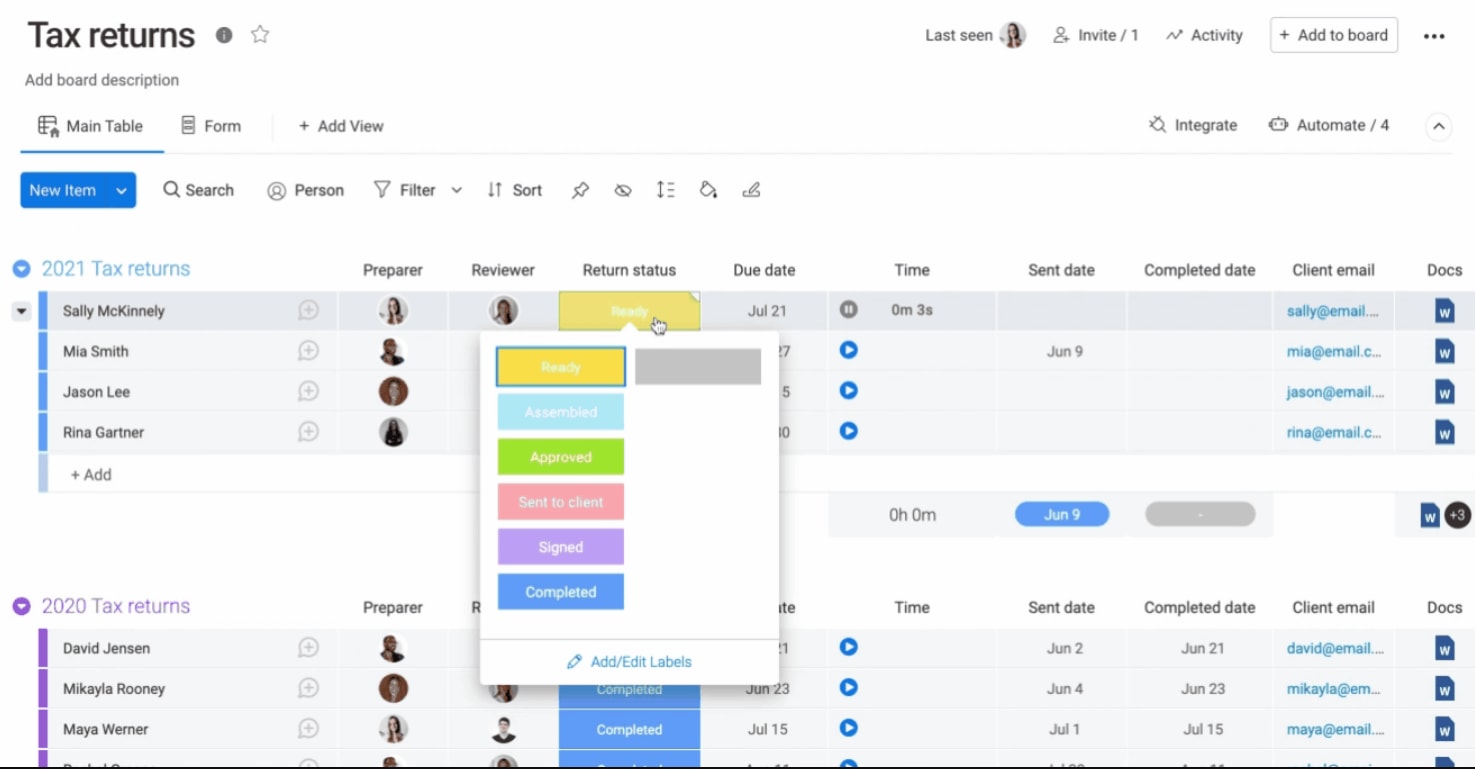
monday.com’s client information sheet template is the perfect tool to keep track of client details. It’s fully customizable and adjustable to fit any type of business.
Our templates can be accessed from any device, so it is easy to manage from a work computer or check in on the phone. It can also be shared with the whole team, and accounts or tasks can be assigned to individual team members.
The client information list shouldn’t be separate from other business tools and documents. When using the monday.com template, it’s simple to integrate client lists with other boards. For example, connect the client information list to the board where the place where client’s projects are managed.
Keeping a list of clients up-to-date can be time-consuming work, especially as customer lists grow. monday.com’s automations help make that process more manageable and less time-consuming. For example, when a new client signs a contract, their information could automatically be moved to a section of the list for projects in progress.
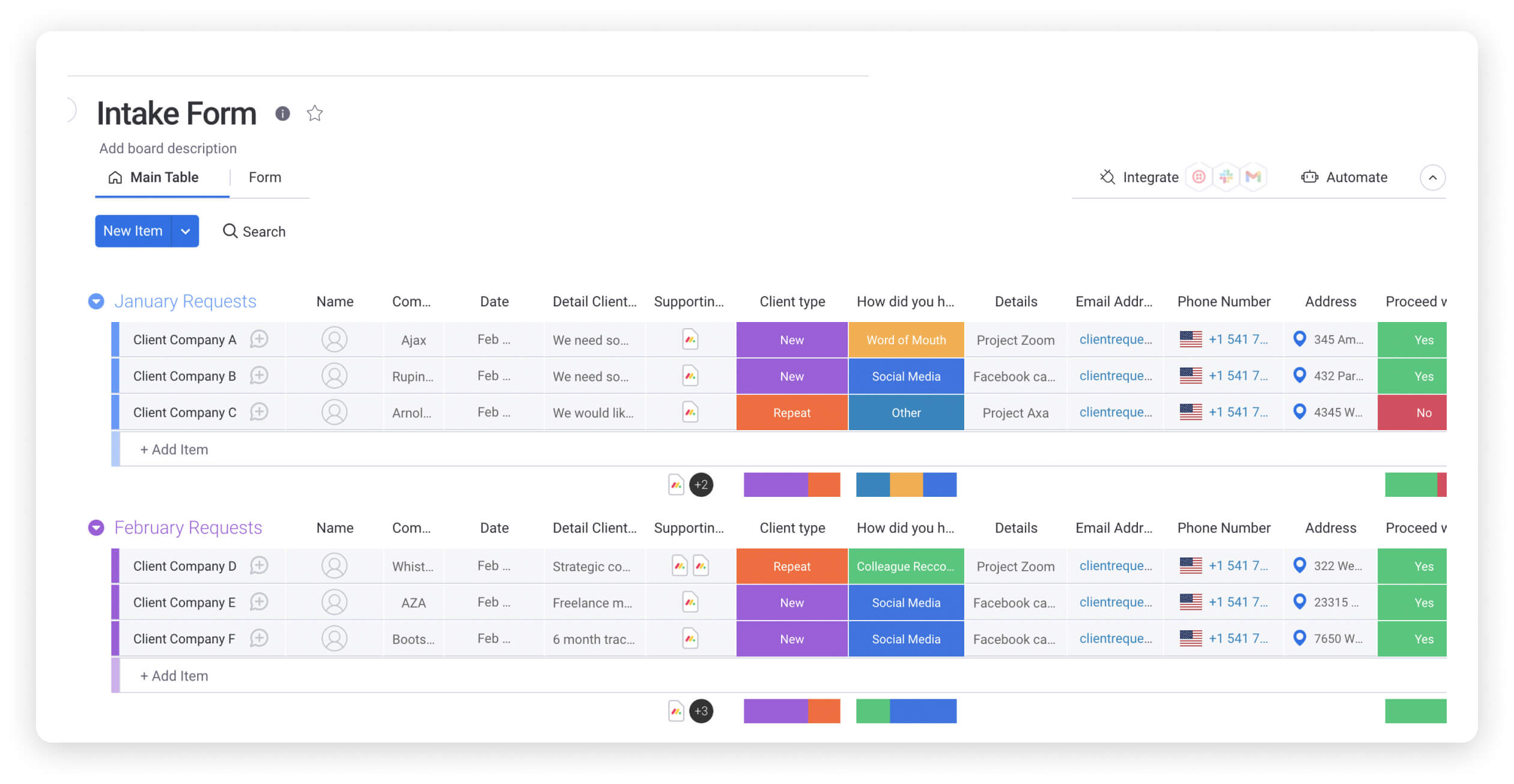
Customizable client information sheet template from monday.com. Check.
Wondering how to turn it into a tool that works for your business? Just follow these simple steps.
What is essential for every client? Make a list of client details to prioritize. This will probably include contact information like address, phone number, email address, etc. For example, lawyers can include space to summarize the client’s case.
These essential items should be the first fields on any client information sheet. After that, brainstorm some “nice-to-have” details. Again, it’s not necessary to collect these from every client, but enter them into the template as necessary.
Sometimes, client information may be entered into the template manually. But it saves time if that information is collected in a form that populates the client list automatically. Keep the form reasonably simple — no client wants to spend more than a few minutes submitting the intake form. Briefly explain on the form how the information will be used. User consent is important!
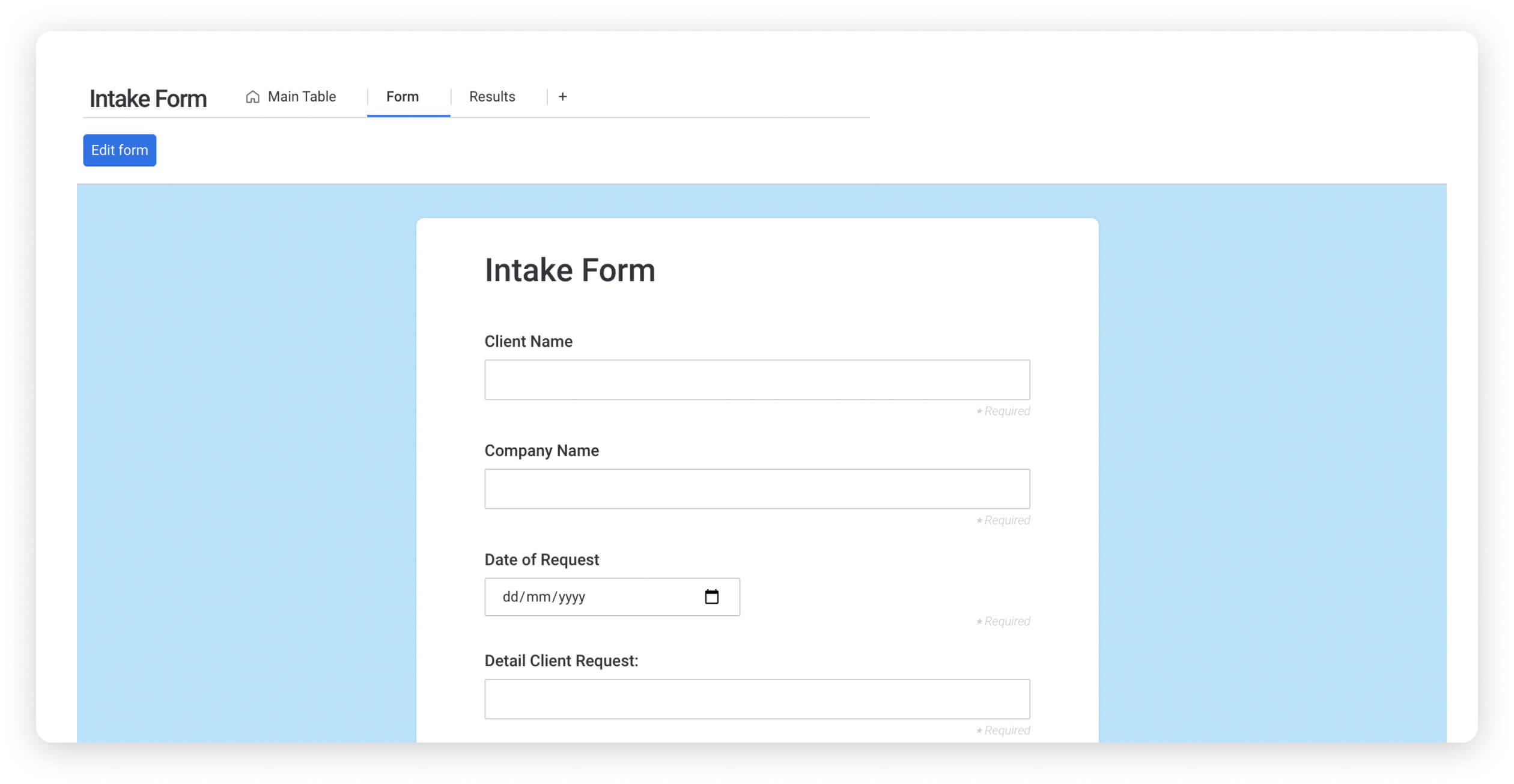
Many people will likely access a client list, but one person should own the document. That team member is in charge of quality control, ensuring the list isn’t full of outdated or duplicate records. Also, decide on permissions for other stakeholders. For example, give some people the ability to edit the list while others can only view it.
A client information sheet should keep client data organized and save time. But if it’s not well maintained, it can become part of the problem. Pretty soon, the team is struggling to find names on the list or determine which record for Bob Smith has the correct email address.
Decide how these possible issues will be handled before starting the client information sheet template. For example, move old clients to a different section or sheet or delete the record? How often will the list be culled and cleaned?
The information included on a client information sheet will depend on each organization or team’s needs. Standard fields on a list of business clients include:
Small business with just a few clients? A brief list of names might be enough. However, as the client list grows, it can be helpful to separate the list into different sections.
For example, a list of current and past clients may be helpful. Or dividing the list by project stage or type could be beneficial.
Excel is an easy way to make a basic client list. However, it lacks the features of a more advanced template. As a result, sharing it with teammates can get messy (think: multiple document copies). In addition, it’s hard to assign list items to individuals.
A client information form (or customer intake form) collects a client’s information for use on the client information sheet. Ideally, the form can auto-populate the client information list.